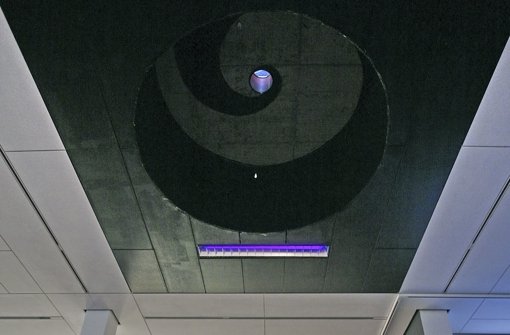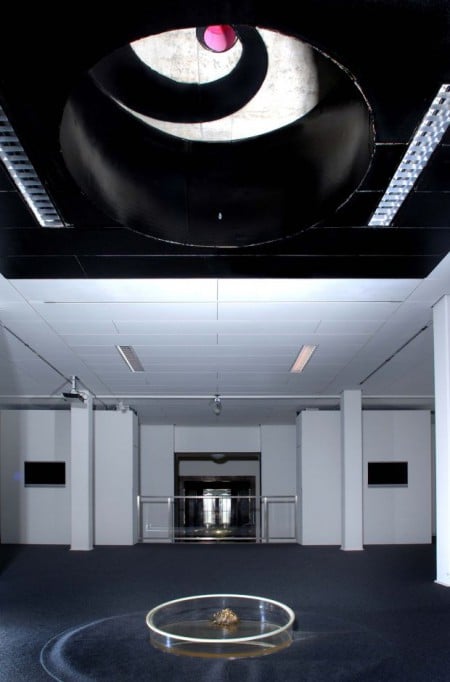Art World
Court Rules Against Artist Who Sued Museum Claiming Empty Space Is Art


Henri Neuendorf


Nathalie Braun Barends HHole for Mannheim
Photo: Morgen Web
Can a hole be art? A district court in the German city of Mannheim decided it can’t, Die Welt reports.
In 2006 the artist Nathalie Braun Barends created the site-specific installation HHole for Mannheim—a hole drilled through several stories of the museum.
The institution, which is currently being expanded with a new building, has decided to cover the holes in the course of its renovation.
The artist took the museum to court in a last-ditch effort to stop her artwork from being plugged. Braun Barends cited copyright legislation and insisted that the absence of something can very well be interpreted as art. (See News Scandal Erupts Over Fake “Invisible Art” Stunt).
But the institution argued that the hole endangered visitors. The guard that the museum had to hire to supervise the hole at all times was expensive, and the artist had rejected the compromise of covering the hole with a glass plate.
“There is a sales contract; we are the owners and therefore have the right to destroy the work,” museum director Ulrike Lorenz stated last year with a typically Germanic matter-of-factness.
Now the court ruled that something that doesn’t exist cannot have artistic value.
No mater what one thinks of Braun Barends work, it is frightening to imagine what that court would have ruled on important conceptual milestones in art history, like the holes that Gordon Matta-Clark drilled into buildings, or Piero Manzoni’s famous canned excrements.
The court did however grant the artist the monetary value of the work as compensation. The €66,000 will probably just about cover her legal fees.